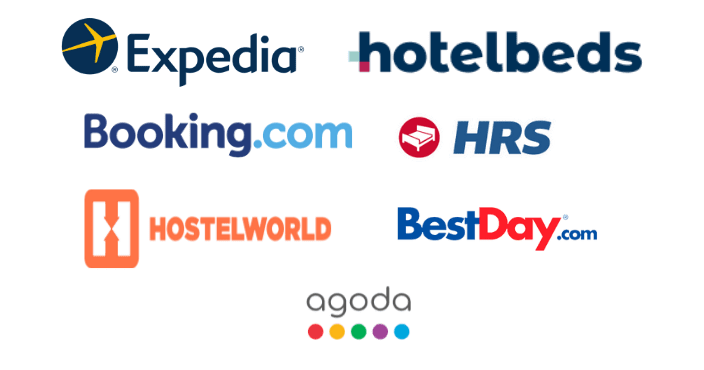Modern Technology in Hospitality: Part 1 – Reservation Management Tools
The Crucial Role of Modern Technology in Hospitality
In the fast-evolving hospitality industry, providing seamless and convenient guest experiences is more important than ever. Modern technologies not only streamline reservations but also manage marketing and guest service, optimize financial operations, and improve resource management. Every hotelier should invest in these technologies to stay competitive and ensure guest satisfaction.

This article will be the first in a three-part series exploring key technological tools essential for hoteliers, including reservation management tools, financial management tools, as well as guest experience enhancements.
Reservation Management Tools
When we think about running a hotel, reservation management is often one of the first aspects that come to mind. Let’s take a closer look at the tools designed to streamline this crucial process.
Property Management Systems (PMS)
A Property Management System (PMS) is a software platform that allows you to manage your hotel’s day-to-day operations, including reservations, guest check-ins and check-outs, billing, and room management.
Functions:
- Integrates all bookings, updates room availability, and handles confirmations and cancellations.
- Adjusts rates and room availability in real-time across all distribution channels.
- Syncs reservations from the hotel’s website and third-party platforms.
- Stores guest details and preferences for personalized service.
- Sends booking confirmations, reminders, and follow-ups to reduce no-shows.
Benefits:
- Automates tasks, reducing manual work and minimizing errors.
- Optimizes room rates and availability, boosting occupancy and revenue.
- By reducing the time spent on manual tasks, staff can focus on enhancing guest services, potentially increasing repeat customer rates.
- Lowers operational costs by reducing manual input and errors.

Online Booking Engines
An online booking engine integrates with your hotel’s website, allowing guests to book their stay directly with you without any intermediaries. To learn more about what a Booking Engine is and its functionalities, check out our short video on YouTube: How does a BOOKING ENGINE work? Essential tool for modern hotels!
Functions:
- Facilitates reservations directly on the hotel’s site, bypassing third-party channels.
- Provides real-time updates on room availability and pricing.
- Handles secure online transactions.
- Allows guests to view, modify, or cancel bookings.
- Enables you to create special offers and discounts.
Benefits:
- Increases direct bookings by reducing reliance on third-party agents, keeping more profits in-house.
- Makes booking available 24/7, increasing convenience for guests and capturing more last-minute bookings.
- Eliminates OTA commissions, significantly increasing net revenue per sale.
Channel Managers
A Channel Manager is a tool that helps you manage and distribute your hotel room inventory across multiple online travel agencies (OTAs) and other booking platforms without the risk of overbooking. To see how a Channel Manager works and its benefits, watch our video: CHANNEL MANAGER explained: Boost your hotel’s online presence and bookings
Functions:
- Updates room availability and rates in real-time across various OTAs and booking sites.
- Manages all online channels from a single platform, reducing the risk of overbooking.
- Adjusts pricing dynamically based on demand, promotions, and competition.
- Automatically integrates bookings from all channels into the hotel’s PMS.
Benefits:
- Prevents revenue loss from overbookings and empty rooms.
- Saves significant time and reduces errors in managing multiple channels individually.
- Optimizes your presence on multiple booking channels, increasing exposure and occupancy rates.
🔍 For an in-depth comparison, click here to check out our PDF Case Study on Booking Engines vs. Channel Managers!
OTA (Online Travel Agencies) Integrations
Integration with Online Travel Agencies (OTAs) increases room distribution by connecting the hotel’s booking system with major online travel platforms.
Functions:
- Links the hotel’s reservation system with multiple OTAs, like Booking.com and Expedia.com.
- Automatically updates room availability and pricing across all connected OTAs to ensure accurate and current information.
- Consolidates reservations from various OTAs into the hotel’s PMS for streamlined handling.
- Provides insights into booking performance across different OTAs, helping to refine strategies.
Benefits:
- Reaches more potential guests by listing rooms on popular travel sites and platforms.
- Attracts more bookings through high-traffic OTAs, improving occupancy rates and revenue.
- Automates updates and reservation management, minimizing manual entry and errors.
🔍 For a detailed comparison, click here to check out our PDF Case Study on Booking Engines vs. OTA Synchronization.

Conclusion
To sum up, reservation management is the backbone of any successful hotel operation. By leveraging advanced technologies such as Property Management Systems, Online Booking Engines, Channel Managers, and OTA Integrations, hoteliers can ensure seamless operations, reduce manual errors, and maximize revenue. These tools not only optimize the booking process but also enhance the overall guest experience.
This article is part one of a three-part series exploring the critical technological tools in hospitality. Stay tuned for the next article, where we will delve into Financial Management Tools essential for hoteliers.






Leave a Reply